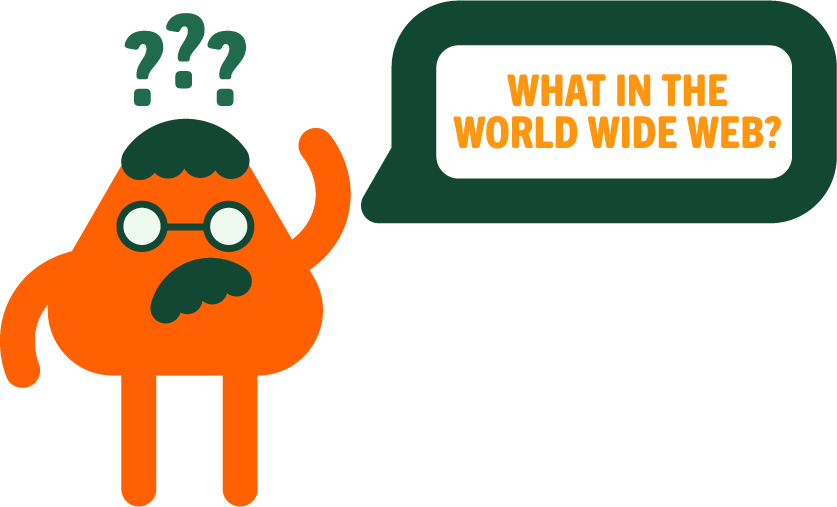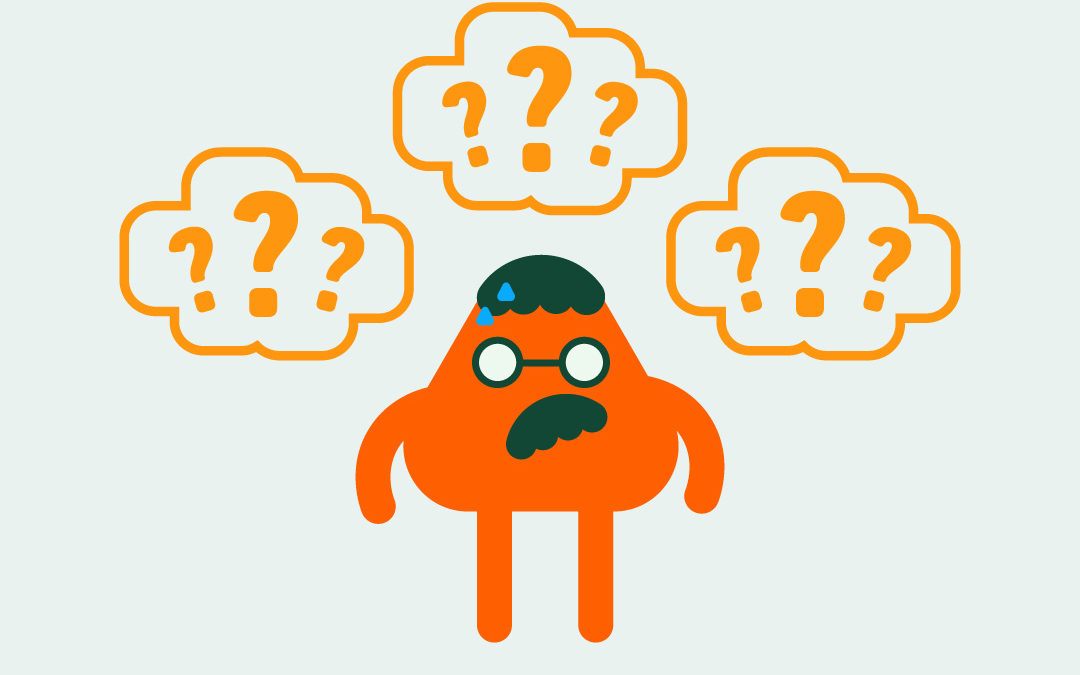TL;DR: Internet: The global interconnected network of servers that connect us to each other.
Wi-Fi: The wireless signal connecting your wireless devices to the internet.
Broadband: A high speed internet connection allowing the transport of multiple signals.
We live in an age where it seems that everyone and their dog is tech-literate – at least enough to navigate the wilderness of the internet with relative ease. Kids with iPads, seamlessly scrolling YouTube; Grandparents at their static zooming stations; parents diving headlong into cringey Facebook comments from their mobile phones, below your “very handsome x” new profile picture. But in reality, a lot of what we say in relation to our everyday tech, doesn’t actually correlate correctly at all. Perhaps the biggest semantic slip-up people make is the malapropic mishmash of Wi-Fi and Internet. And dear reader, let me confide in you, I too have oft made that same mistake in my darkening past. I’m here to steer you away from those same embarrassing mistakes. So, let’s be clear about the big difference between Wi-Fi, internet, and, while we’re at it, let’s throw in a definition of broadband too, so we’re all caught-up and clued-up.
Your Simple Go-To Definition
Firstly, let’s make this really clear and simple, before getting onto the finer finicky details and internet lingo.
Internet: The global interconnected network of servers that connect us to each other.
Wi-Fi: The wireless signal connecting your wireless devices to the internet.
Broadband: A high speed internet connection allowing the transport of multiple signals.

How Does the Internet Work?
Right, so with the simple stuff out the way, let’s dive deeper.
Ah, the almighty internet. The source of all our joy and a lot of our frustrations (especially when it’s not as quick as we’d like!). Now, the definition of the internet can seem confusing, or even daunting. And to be fair, it kind of is. After all, it’s basically a global network that has revolutionised society and keeps us all connected in ways that were not even imaginable before it came along. But it would be an exercise in self-inflicted stress to try and understand every little detail about how it works. Let’s make it a little easier, shall we?
So, the internet is, on a basic level, a gigantic network of computers, servers, and other accommodating devices. You remember www. right? We used to manually type it in at the start of all our searches before that became a bit redundant. But you still see it at the start of all those wordy website URL’s. It’s a good and pretty clear way to think of the internet as a whole. A World Wide Web. A big old spiders’ web of interconnected devices all over the big blue globe.
That network acts as the delivery system between all the world’s computers, so that we can communicate with each other. It’s like a super complex relay. Imagine sending an email, for example. That send button passes the baton (or the email) onto a line of exceptionally organised runners, who continue that baton’s journey to the intended receiver at the finish line. The two runners in between you and your buddy on the other end, are called servers. Those servers are what keep us connected. Without them in between, then, even though our baton is intended for the final runner, there’s still a big gap in the track. We can’t reach our runner without the servers in between helping to carry the baton. A server’s sole purpose is to connect. Those servers make sense of the internet’s complicated language, otherwise known as internet protocol.
Oh, and that URL we mentioned. Well, that’s what the unique address of each server is known as. Every server has a URL – from Facebook to YouTube to your own email address. When you access a Twitter URL, you’re accessing another computer owned and operated by Twitter. All those servers form the global network that constitutes the internet. And all those servers are what stand between your computer and your friend, family, or boss’s computer in any part of the world. It’s complicated in scale, but really the process is simpler than it seems, and certainly not quite as mystical.
What Is Wi-Fi (Basically Wireless Internet Connection)
So, I think now we’ve got a pretty decent handle on the internet. It’s not quite as simple as the black box in The IT Crowd, but it’s also not as complicated as it may seem. Now, Wi-Fi, on the other hand, should be even easier to explain. Very basically, your Wi-Fi is what connects you up to the internet. It gets you on that relay track to begin with. To be more specific, it’s a type of wireless connection that allows your electronic devices – whether that be your mobile devices, tablet, laptop, T.V. or games console – to connect to your router, thus linking you up to all of those potential servers via your router.
Imagine an invisible cable (okay, you can’t imagine something invisible, but you get me). It’s like an invisible cable running from your device to your router. In some cases, the cable isn’t invisible at all, as with some desktops. But with Wi-Fi, that connection becomes wireless, while enacting the same role: connecting you to the internet.
It’s not uncommon to hear people use “Wi-Fi” as the shorthand for internet as a whole, it’s probably why you’re here to begin with. But in reality, when people blame the Wi-Fi for their internet connection not working, it’s actually the internet connection from the router, not the Wi-Fi at all. Of course, there are times when the Wi-Fi may play into bad internet connection, which you find out more about here. This kind of misnaming might not seem so important, but it can come in really handy when troubleshooting, or in trying to communicate to experts what exactly is wrong. Getting this kind of know-how correct could save you a lot of time and will no doubt help improve your tech-lingo confidence.
Here’s an interesting fact. The word Wi-Fi, although it sounds like very techy shorthand, doesn’t actually mean anything, really. That is to say, it’s not an acronym, it doesn’t stand for anything. It was actually made up by a marketing agency. The “Wi” bit predictably has its roots in the word “wireless”, but the whole word is just a made-up product of marketing. And it’s safe to say it’s stuck.
Is Broadband Different from Wi-Fi and Internet?
Hey! Looks like you’ve got pretty good footing in the tech-terrain now! Have a bonus definition, on us.
So, your broadband is essentially the name of the technology which is used to connect you to the internet. Sounds like Wi-Fi, right? Well, not exactly. Like we talked about before, Wi-Fi is a wireless connection, connecting your device to the modem/router. Broadband, on the other hand, is the actual internet connection that your modem/router uses to send and receive data from your house to the big round interconnected world. Unlike Wi-Fi, broadband’s name actually relates to what it does. It’s called broadband because the bandwidth used is super wide (or broad), allowing multiple signals at once. Remember dial-up? Strictly wired internet connection. You couldn’t use the phone at the same time as the internet. Seems strange now. That was pre-broadband, meaning only one signal could connect at any one time. Broadband’s multiple signal share means faster speeds, more internet usage and less of an internet issue!
The Network of Networks
So, there you have it. Internet, Wi-Fi, broadband. Completely different things, all with their own unique jobs. Though, at the end of the day, the important thing to know is that they all work closely together. They’re a tight-knit team making sure you keep connected always. Because, after all, aren’t we better connected? Better when we work together. A one-man relay means a lot of running. We can all help pick up the baton. Positive’s promise is to human connection. Click here to find out how you can get faster, more reliable internet that keeps you better connected.


